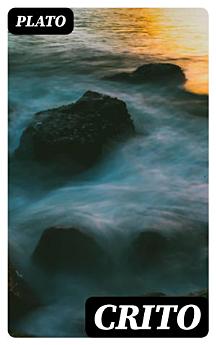Crito
сеп 2022. · DigiCat
E-knjiga
16
Stranica
family_home
Ispunjava uslove
info
reportOcene i recenzije nisu verifikovane Saznajte više
O ovoj e-knjizi
In "Crito," Plato presents a profound dialogue between Socrates and his devoted friend Crito, exploring themes of justice, morality, and the individual's relationship to the state. Set in Socrates' prison cell, the text unfolds through Socratic questioning, employing a philosophical style that is dialectical and critical. The dialogue examines the ethical implications of escaping from prison, standing as a key piece within the larger context of Socratic thought and the concept of the social contract, which resonates with later political philosophy, including the works of Rousseau and Hobbes. Plato, a student of Socrates and a foundational figure in Western philosophy, penned "Crito" during a period marked by political turmoil and personal loss after the execution of his mentor. This context undoubtedly influenced his portrayal of Socratic ideals, allowing him to articulate Socrates' unwavering commitment to virtue and justice, even in the face of death. As a philosopher, Plato sought to challenge the moral complacency of Athenian society and to provoke deeper understanding of civic duties. This essential text invites readers to grapple with the tension between individual conscience and ethical obligation. "Crito" is not merely a historical artifact; it remains vividly relevant today. Those interested in ethical philosophy, political thought, and the legacy of Socratic dialogue will find rich rewards in this compelling exploration of moral integrity and civic responsibility.
O autoru
Plato stands as a pivotal figure in the development of Western philosophy, born circa 427 BCE in Athens, Greece. As a student of Socrates and later a teacher of Aristotle, Plato's influence cannot be overstated. His work forms a fundamental part of the philosophy curriculum to this day. In his dialogues, Plato employed a dialectical approach to explore a range of philosophical issues – from metaphysics, ethics, and epistemology, to political theory. The dialogue 'Crito' exemplifies Plato's literary style, encapsulating a Socratic conversation concerning justice and individual morality. In 'Crito', Socrates deliberates on whether he should escape his impending execution, bringing to the fore themes of civic duty and the rule of law. Beyond 'Crito', Plato's most celebrated works include 'The Republic', wherein he delineates his vision of a just society and the philosopher-king, and 'Symposium', which explores the nature of love. His contributions have laid the groundwork for countless philosophical debates and have spawned various interpretations over the centuries. As the founder of the Academy in Athens, the first institution of higher learning in the Western world, Plato's legacy also extends to the realm of education. His works continue to be revered for their profound insights and methodological rigor.
Ocenite ovu e-knjigu
Javite nam svoje mišljenje.
Informacije o čitanju
Pametni telefoni i tableti
Instalirajte aplikaciju Google Play knjige za Android i iPad/iPhone. Automatski se sinhronizuje sa nalogom i omogućava vam da čitate onlajn i oflajn gde god da se nalazite.
Laptopovi i računari
Možete da slušate audio-knjige kupljene na Google Play-u pomoću veb-pregledača na računaru.
E-čitači i drugi uređaji
Da biste čitali na uređajima koje koriste e-mastilo, kao što su Kobo e-čitači, treba da preuzmete fajl i prenesete ga na uređaj. Pratite detaljna uputstva iz centra za pomoć da biste preneli fajlove u podržane e-čitače.








